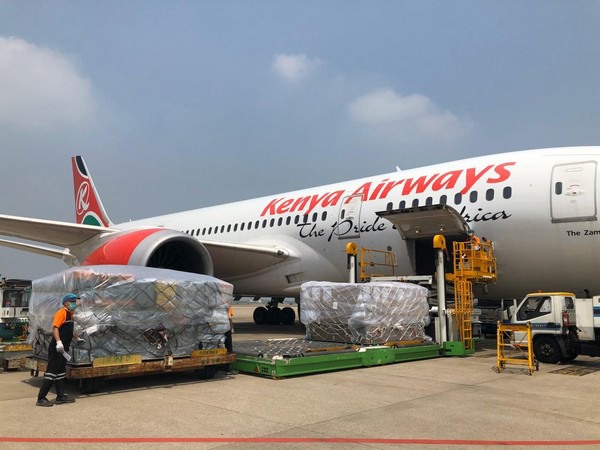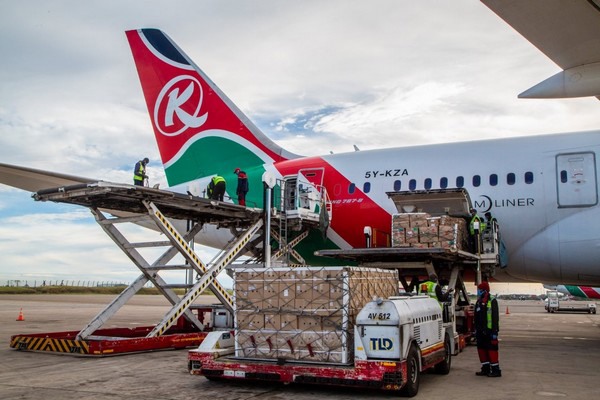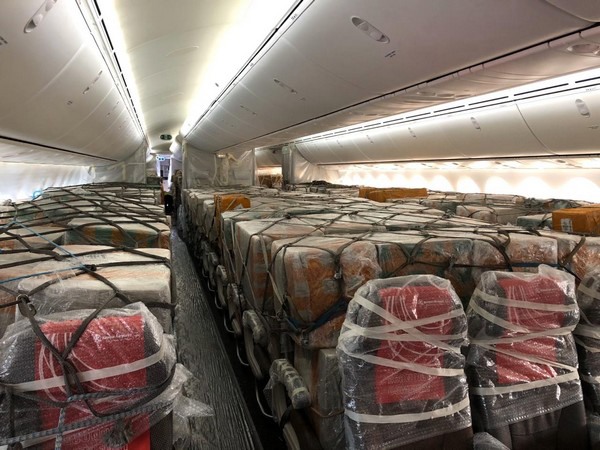The horticulture industry in Kenya is optimistic of quick recovery as global space slowly opens after the Covid-19 disruption.
Export earnings hit KSh72 billion between January and May 2020, up from KSh65 billion for the same period last year, translating to an 11% increase. The good earnings are largely attributed to the country’s ability to ship out produce during the pandemic, serving a rising demand for food.
For the flower sector however, it was a tough call for the exporters who had to balance between maintaining a market presence, destroying beautiful flowers, sending workers home, keeping plants breathing and protecting their farms from the virus.
By Bob Koigi

Market presence meant selling flowers, not to make money but to maintain a presence for Kenya, according to Trish Patel, head of marketing at PJ Dave, whose 80 per cent of orders were cancelled. “We continued shipping the little orders coming through to secure future markets for Kenya”, he said.
Oserian Development Company Administration Director Mary Kinyua says the farm exports fell from 1 million stems per day to about 350,000 throwing the company, like many others, into a financial strain. “The markets are opening up slowly and barring any other disruptions we should be back to full business by end of the year,” she said adding that it will however take longer to recover from the losses.
“March 15 is a day I will not forget in my life”, said Craig Oulton, General Manager, Floriculture, Kisima Farm based in Timau. The date is etched in the minds of many, being the day President Uhuru Kenyatta declared no entry no exit from Nairobi, the distribution center for fresh produce exports. The following week international flights were grounded and for a week no produce was shipped out of the country.

Nairobi hosts the Jomo Kenyatta International Airport (JKIA) through which fresh produce flies out daily to the various destinations across the world. The ‘lockdown’ came as the industry was grappling with cancellation of orders at a critical season ( March-May) covering Mothers Day, International Womens Day, UK Mother’s Day and the Easter holidays. Tonnes of flowers were already harvested ready for Mother’s Day, arguably the second most important sales day for flowers after Valentines. Exporters say this year lover’s day was the best in five years and they looked forward to a blossoming 2020. Then Covid-19 hit. Flights were grounded as many markets shut but there were spot orders requiring to be supplied. Avocados especially were in high demand, and Kenya was the only country with the fruits in season.
To accord fresh produce clearance, farms and firms staff required access documents. ‘The coordination of the movement of produce from farms to the airport in a pandemic challenge remains a proud moment for Kenya”, says Dr Marube, whose sentiments are echoed by many in the industry. “We did it for Kenya”, adds Fresh Produce Consortium ( FPC) CEO OkisegereOjepat adding, “ I haven’t encountered a situation when all of us worked in a seamless coordination to ensure our produce got to the markets that have in turn rewarded the country. We were in the shelves when nobody else was resulting in increased orders and attraction of new buyers”, he said.

National carrier. Kenya Airways collapsed passenger seats to airlift Kenya horticulture produce to Europe as industry players joined forces to secure markets at the height of the Covid-19 pandemic .
The Kenya Flower Council, aware that restrictions would be affected had a week earlier alerted its members to take steps to ensure trucks got cleared at the roadblocks. “The KFC did a great job”, said Mr Oulton, reflecting the sentiments of many flower exporters who laud the council for obtaining the necessary documents with speed. Mr Oulton adds, “I am very proud of the Kenya government and private sector associations for the cooperation between the various agencies to ensure our flowers reached the markets.
The market presence for Kenya was reinforced through the Kenya Private Sector Alliance led Caravan of Hope initiative that saw flowers flown through KQ to the UK for donation to hospitals, an effort that didn’t go unnoticed when President Uhuru Kenyatta recognized Elgon Kenya Managing Director Bimal Kantaria, who chaired the caravan, among Covid-19 heroes on Madaraka day. Said Mr Kantaria; UK is a big market for Kenya and we needed to support them in the hope when markets opened they would continue buying flowers from Kenya.
East African Growers, exporters of fruits, vegetables and flowers say orders from the UK never stopped because of the logistical support all in the chain accorded the industry. The company says it was not making money but market presence was important, and they kept supplying to secure future orders.
Images courtesy of Kenya Airways
